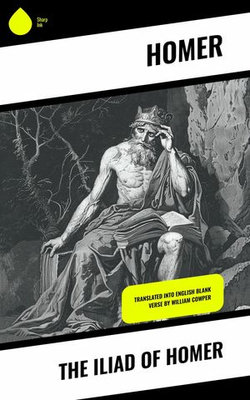The Iliad of Homer, an epic poem composed in the 8th century BCE, stands as a cornerstone of ancient Greek literature and a pivotal work in the Western canon. This text intricately weaves themes of heroism, honor, and the tragic consequences of war through a rich tapestry of vivid characters and events surrounding the Trojan War. In its dactylic hexameter, Homer employs a blend of direct speech, formal similes, and poignant narrative strategies, creating a compelling dynamic that mirrors the tension and moral complexities of its time. Set against the backdrop of mythological tales, it captures not only the fierce battles but also the interplay of divine intervention and human agency, inviting readers to reflect on the nature of fate and mortality. Homer, traditionally considered the author of both The Iliad and The Odyssey, remains an enigmatic figure in history. Little is definitively known about his life, yet his works reflect deep insights into the societal values and philosophies of ancient Greece. This epic poem likely draws from the oral tradition of storytelling, with its heroic ideals and vivid descriptions shaped by centuries of cultural evolution, echoing the lived experiences and spiritual beliefs of his audience. For anyone seeking a profound understanding of the human experience, The Iliad offers exquisite exploration into honor, glory, and the cost of conflict. As a foundational text in the study of literature and ethics, this work not only captivates with its narrative brilliance but also serves as a timeless reflection on the universal themes of war, love, and loss. Readers will find in Homer's epic an unparalleled journey that resonates across ages.



Share This eBook: